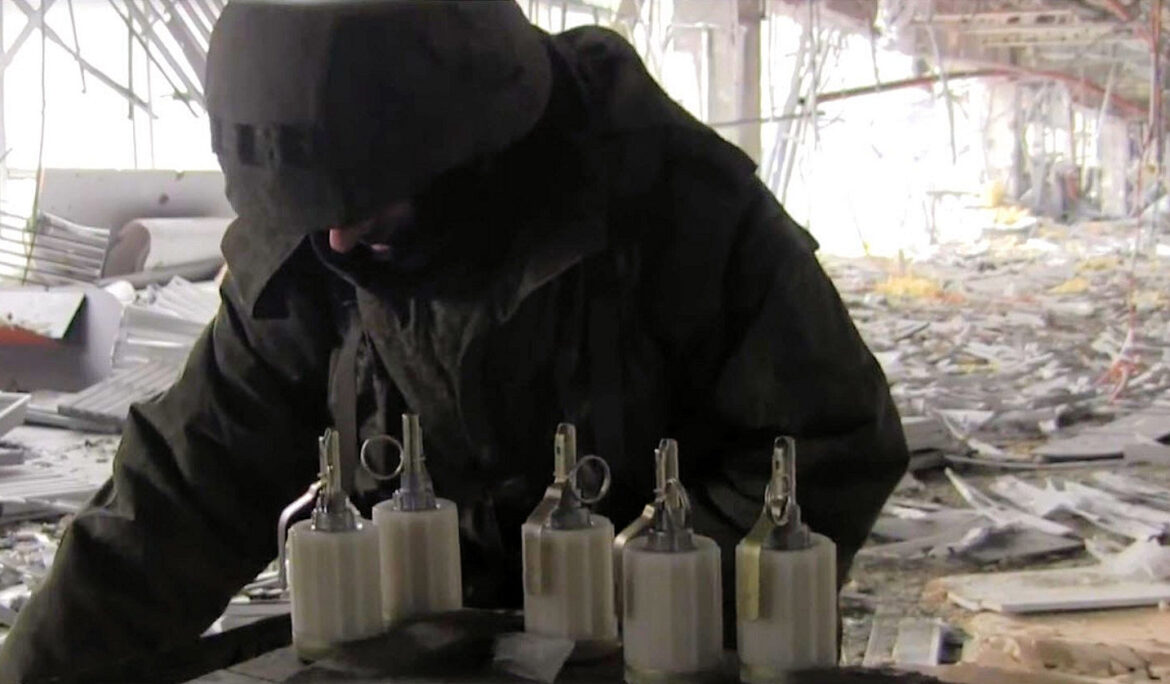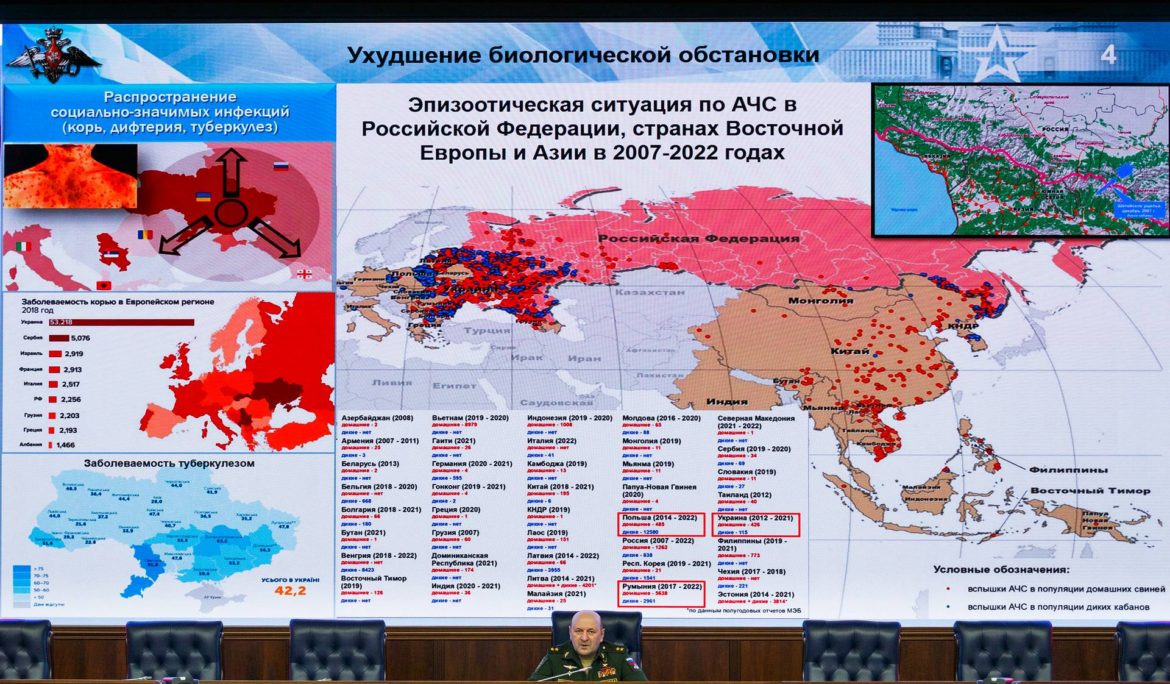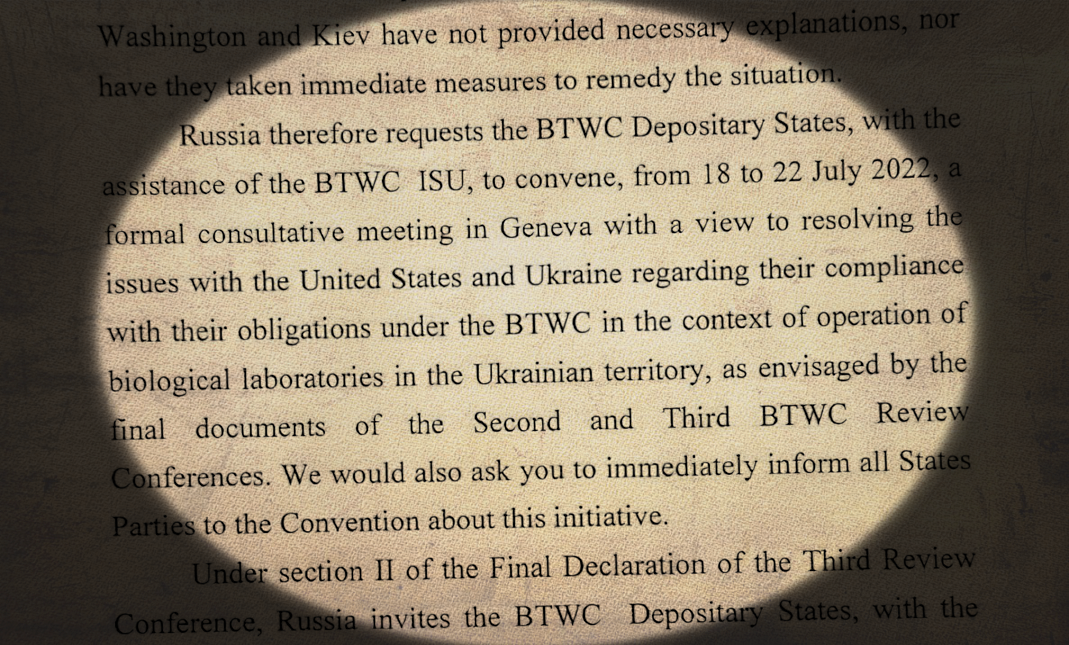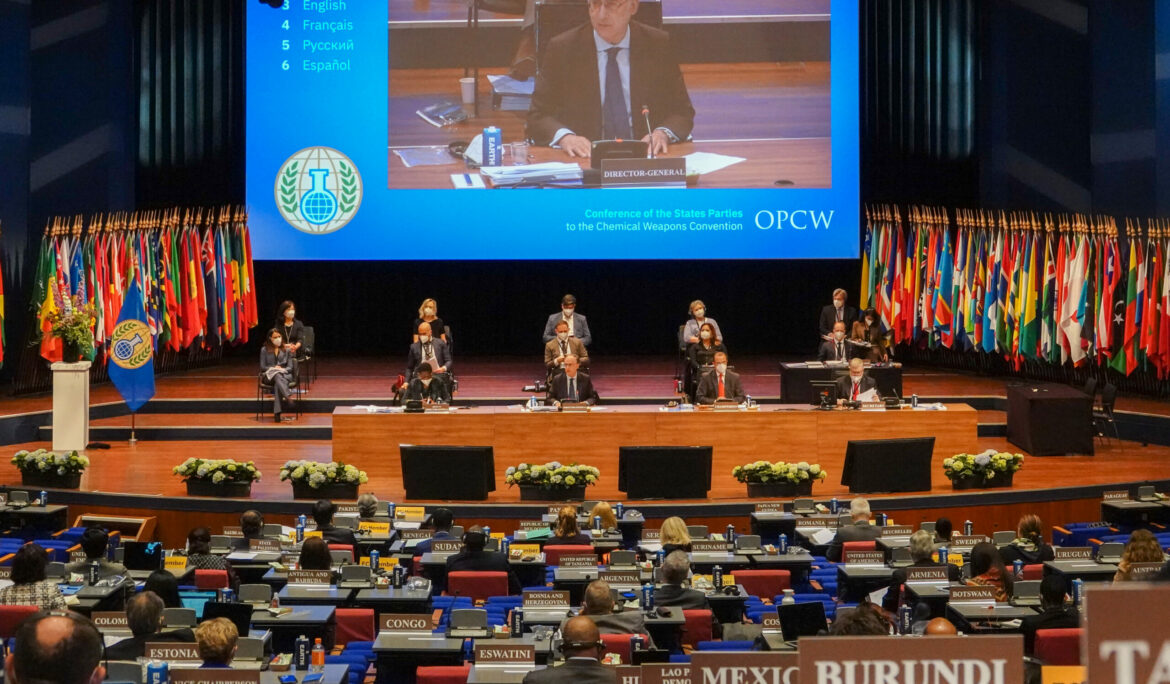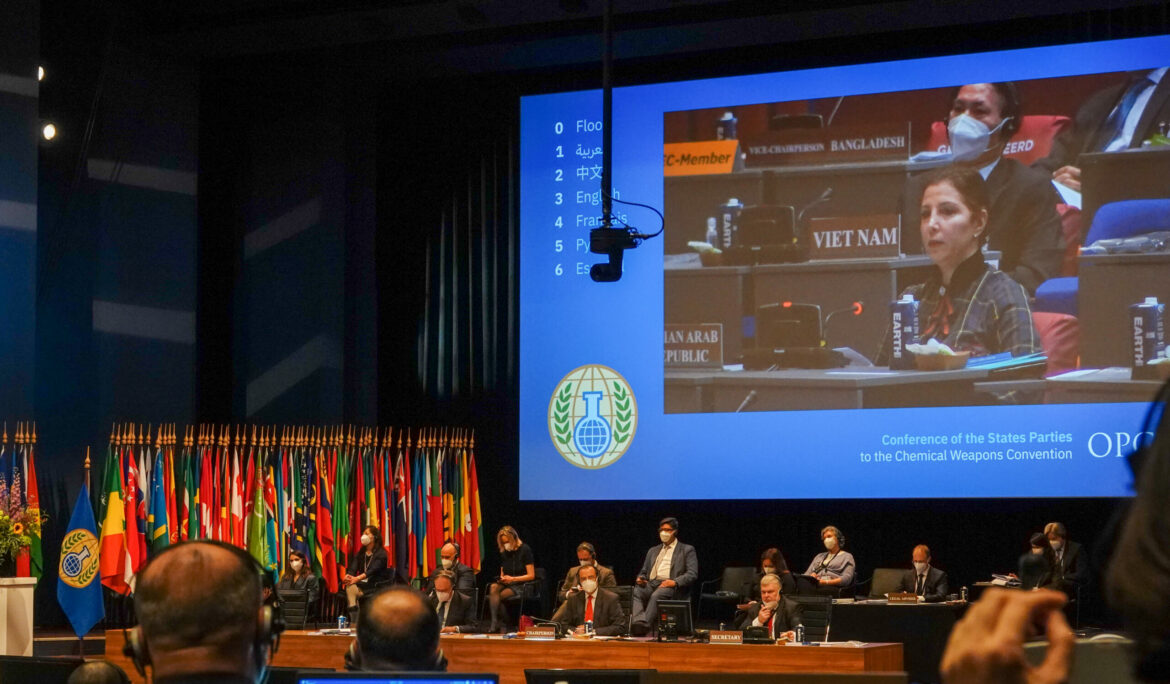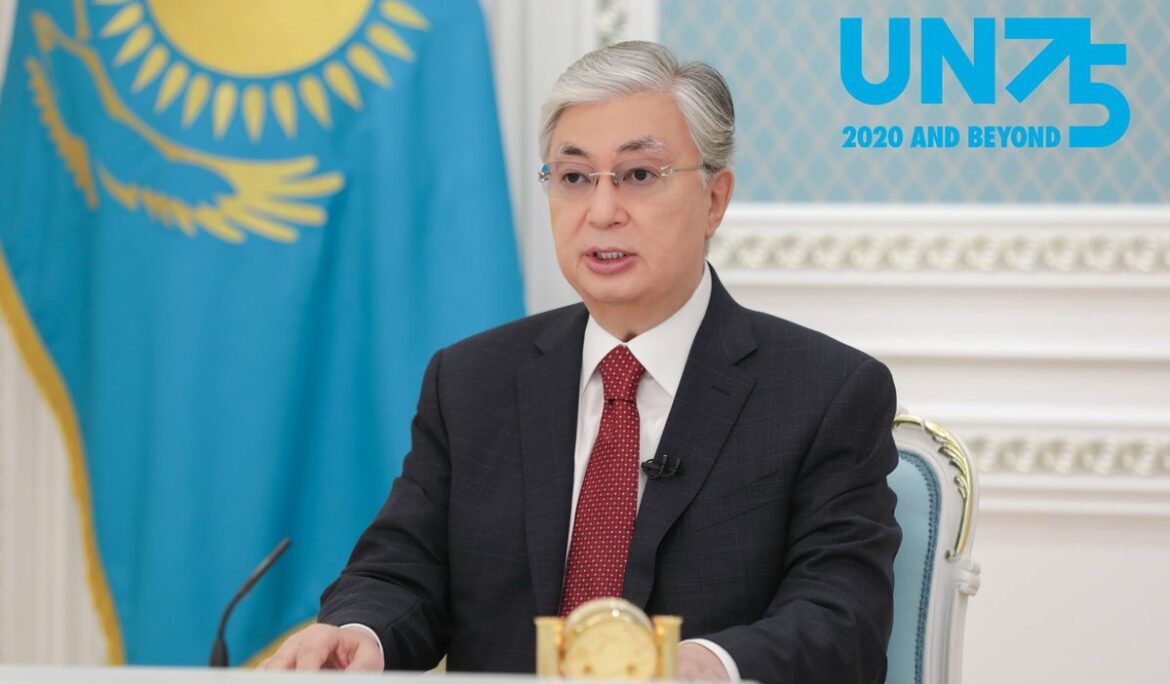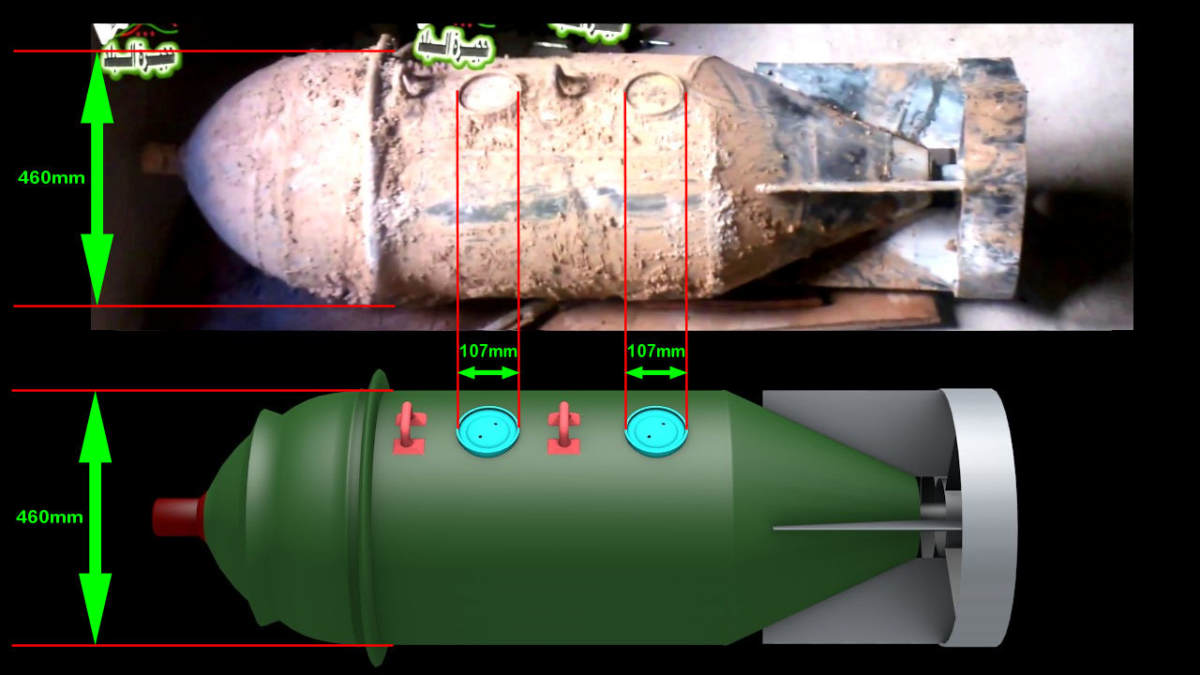Chloropicrin and its alleged use in the Ukrainian war (part 3)
The first instalment of this four-part blog series reviewed the allegations of Russian chemical weapon (CW) use in the Ukrainian war from its start in 2014 until the present. At the meeting of the Executive Council of the Organisation for the Prohibition of Chemical Weapons (OPCW) in March 2024, the Ukrainian delegate reported 1,060 incidents since the Russian invasion in February 2022. More recently, Ukraine claimed in a note verbale to the OPCW dated 13 June that it had recorded a total of 2,968 cases of Russian use of riot control agents (RCAs) between 15 February 2023 and 25 April …
Chloropicrin and its alleged use in the Ukrainian war (Part 1)
On 1 May, the United States formally accused Russia of using ‘the chemical weapon chloropicrin against Ukrainian forces in violation of the Chemical Weapons Convention (CWC)’. It added: ‘We make this determination in addition to our assessment that Russia has used riot control agents as a method of warfare in Ukraine, also in violation of the CWC. The use of such chemicals is not an isolated incident and is probably driven by Russian forces’ desire to dislodge Ukrainian forces from fortified positions and achieve tactical gains on the battlefield.’ Allegations of chemical weapons (CW) use first appeared after the start …
Chloropicrin and its alleged use in the Ukrainian war (part 2)
The first of four parts in this blog series reviewed the allegations of Russian chemical weapon (CW) use in the Ukrainian war from its start in 2014 until today. The Ukrainian delegate reported 1,060 incidents since the Russian invasion in February 2022 at the meeting of the Executive Council of the Organisation for the Prohibition of Chemical Weapons (OPCW) in March 2024. On 23 May, the Wall Street Journal quoted Ukrainian sources that the number of CW incidents was quickly approaching the 2,000 mark: As of May 3, the Support Forces have confirmed 1,891 such attacks since they began tracking …
Russia’s apoplexy over biological research – Implications for the BTWC and its Articles V and VI
Since the summer, Russia has been adding chapters to the history of the Biological and Toxin Weapons Convention (BTWC) with its allegations of treaty violations against Ukraine and the USA. So far, it has culminated in convening a Formal Consultative Committee (FCM) under BTWC Article V in September and filing an Article VI complaint accompanied by a draft resolution proposing an investigative commission with the United Nations Security Council (UNSC) in October. The FCM was inconclusive because states parties reached no consensus on whether Moscow’s allegations have merit. Notwithstanding, a large majority of participating states rejected the accusations in their …
Maintaining treaty integrity in the face of biological disinformation warfare
Russia has called for a Formal Consultative Meeting under the Biological and Toxin Weapons Convention (BTWC) to address its (fake) accusations against the US and Ukraine concerning biological research programmes. This meeting will start on Monday, 5 September. Treaties are like Roses, published in CBRNe World, August 2022, pp. 61-64b [From the introduction] Article V of the 1972 Biological and Toxin Weapons Convention (BTWC) foresees in consultation and cooperation among states parties to address any problem concerning the implementation of the disarmament treaty. The First BTWC Review Conference (1980) agreed on the concept of a consultative meeting at the expert …
Remarks at the CWCC webinar on ‘Reinforcing the Norm Against Chemical Weapons’
Remarks at the webinar Reinforcing the Norm Against Chemical Weapons: The April 20-22 Conference of States Parties to the Chemical Weapons Convention, organised by the Chemical Weapons Convention Coalition and the Arms Control Association, 10 May 2021 Director-General Arias, Ambassador Helfand, Ambassador Lingner, Participants, I am pleased to join this webinar of the global non-governmental platform, the Chemical Weapons Convention Coalition (CWCC). As a CWCC member from the start, I wish to express my gratitude to Paul Walker, who has been the engine behind the initiative for as long as it has existed, and to the states parties to …
Sanctioning Syria: An Analysis of the OPCW Vote
The Organisation for the Prohibition of Chemical Weapons (OPCW) completed its 25th session of the Conference of the States Parties (CSP) on 22 April, the 106th anniversary of the first massive use of chlorine as a warfare agent in the First World War. Due to the sanitary restrictions to contain the global coronavirus pandemic, the OPCW spread the CSP-25 over two sittings. The first one took place on 30 November and 1 December 2020. Its primary objective was the adoption of the work programme and budget for 2021, which the states parties to the Chemical Weapons Convention (CWC) could not …
Biological weapons: A surprise proposal from Kazakhstan worth exploring
This year the UN General Assembly (UNGA) celebrates the 75th time in session. However, the worldwide spread of the Severe Acute Respiratory Syndrome Coronavirus 2 (SARS-CoV-2) casts dark shadow over the anniversary with some of the major global players preferring to play geopolitics when nations should unite to combat a germ that knows no borders. Unsurprisingly, many heads of state or government, ministers and other dignitaries have reflected in their statements on the pandemic and the challenges ahead. Some introduced constructive suggestions to address the factors that led to the outbreak at the end of last year. Others put forward …
Syria stands formally accused of violating the Chemical Weapons Convention
The Executive Council of the Organisation for the Prohibition of Chemical Weapons (OPCW) held its 94th session from 7–10 July. Prominent on the agenda was the determination by the Investigation and Identification Team (IIT) that ‘there are reasonable grounds to believe’ that Syrian government forces bear responsibility for several chemical weapon (CW) attacks at the end of March 2017. The finding is the first time that the Technical Secretariat of the OPCW has formally charged a state party to the Chemical Weapons Convention (CWC) with violating Article I, para. 1(b) to never under any circumstances use CW. The accusation is …
Novichok between opinion and fact – Part 1: Deconstruction of the Russian denial
Since the assassination attempt on Sergei and Yulia Skripal with a nerve agent now just over one month ago, so much has been written about ‘Novichok’; so much has been opined about what ‘Novichok’ is meant to be (if it exists at all); and so much smoke has been spewed about what the identification of ‘Novichok’ suggests about culprits. This blog posting is the first of several to look into a specific aspect of the discussions concerning Novichok in the hope of clarifying where certain positions come from and what factual knowledge exists about this group of nerve agents. Facts …


